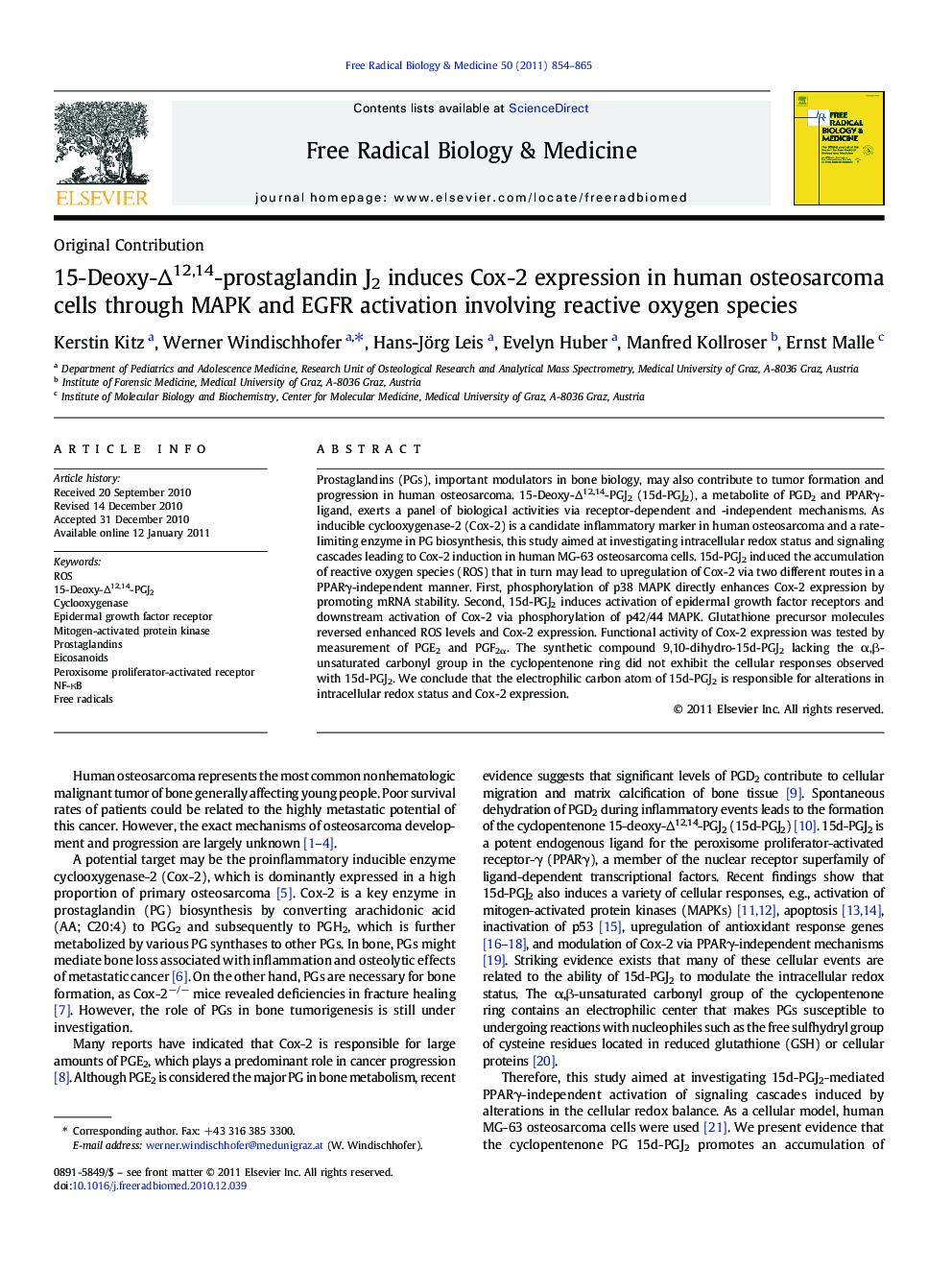| Article ID | Journal | Published Year | Pages | File Type |
|---|---|---|---|---|
| 10738512 | Free Radical Biology and Medicine | 2011 | 12 Pages |
Abstract
Prostaglandins (PGs), important modulators in bone biology, may also contribute to tumor formation and progression in human osteosarcoma. 15-Deoxy-Î12,14-PGJ2 (15d-PGJ2), a metabolite of PGD2 and PPARγ-ligand, exerts a panel of biological activities via receptor-dependent and -independent mechanisms. As inducible cyclooxygenase-2 (Cox-2) is a candidate inflammatory marker in human osteosarcoma and a rate-limiting enzyme in PG biosynthesis, this study aimed at investigating intracellular redox status and signaling cascades leading to Cox-2 induction in human MG-63 osteosarcoma cells. 15d-PGJ2 induced the accumulation of reactive oxygen species (ROS) that in turn may lead to upregulation of Cox-2 via two different routes in a PPARγ-independent manner. First, phosphorylation of p38 MAPK directly enhances Cox-2 expression by promoting mRNA stability. Second, 15d-PGJ2 induces activation of epidermal growth factor receptors and downstream activation of Cox-2 via phosphorylation of p42/44 MAPK. Glutathione precursor molecules reversed enhanced ROS levels and Cox-2 expression. Functional activity of Cox-2 expression was tested by measurement of PGE2 and PGF2α. The synthetic compound 9,10-dihydro-15d-PGJ2 lacking the α,β-unsaturated carbonyl group in the cyclopentenone ring did not exhibit the cellular responses observed with 15d-PGJ2. We conclude that the electrophilic carbon atom of 15d-PGJ2 is responsible for alterations in intracellular redox status and Cox-2 expression.
Keywords
Related Topics
Life Sciences
Biochemistry, Genetics and Molecular Biology
Ageing
Authors
Kerstin Kitz, Werner Windischhofer, Hans-Jörg Leis, Evelyn Huber, Manfred Kollroser, Ernst Malle,
